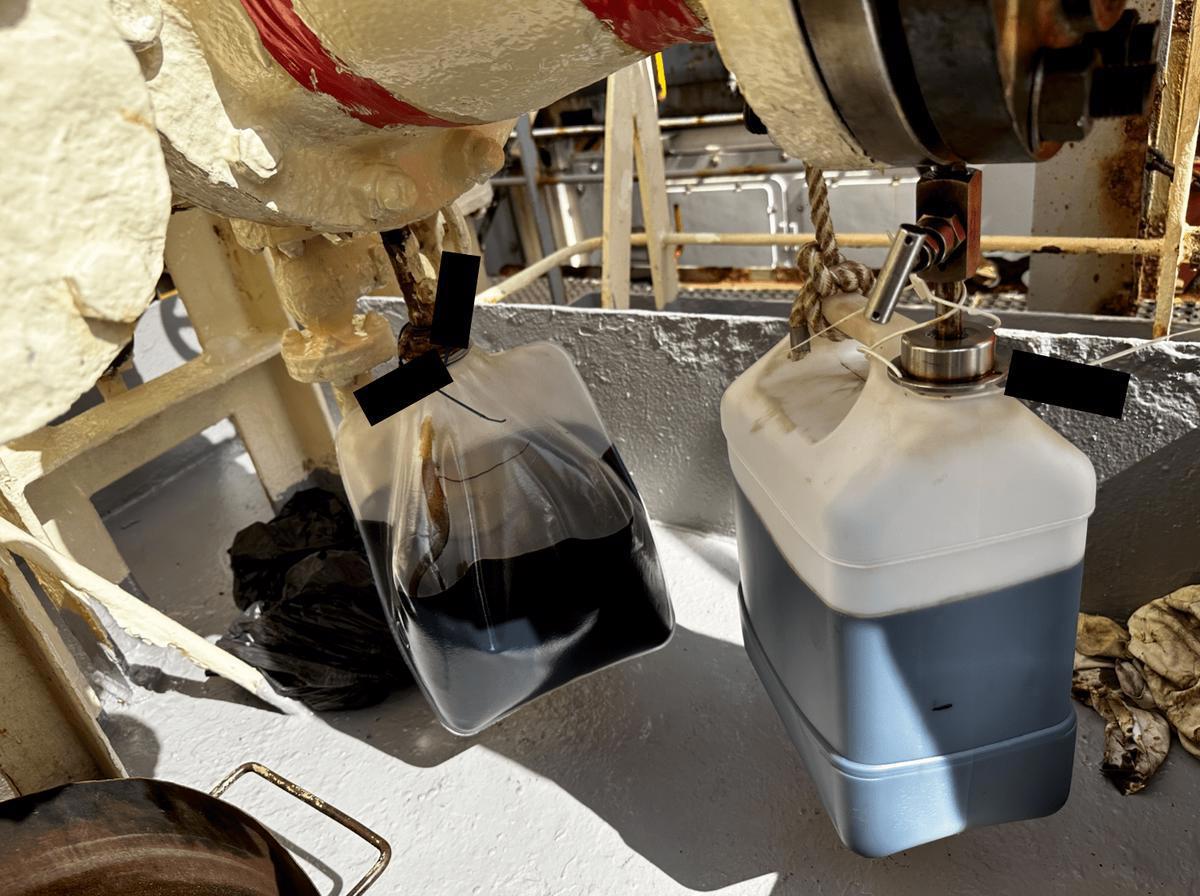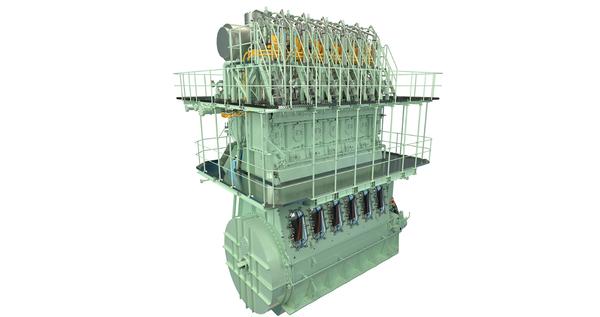Marine insurer Skuld warns of engine risks from CNSL biofuel
Biofuels made from cashew nut shell liquid (CNSL) can adversely affect a ship's engine components, marine insurer Skuld cautions.
 PHOTO: Biofuel samples collected during a biofuel pilot project. GCMD
PHOTO: Biofuel samples collected during a biofuel pilot project. GCMD
Several vessels under Skuld’s coverage recently reported fuel system-related operational issues, including injector failure, filter and heater clogging, fuel sludging and deposit buildup due to fuel contamination, according to Dick Farrel Camoying, assistant vice president at Skuld.
Testing of HSFO and VLSFO samples from these vessels detected a presence of phenolic compounds such as cardol, cardanol and anacardic acid - all of which are components of CNSL.
Camoying explained that CNSL contamination can lead to premature deterioration of fuel pump components, cracks in fuel systems and poor engine performance, ultimately reducing energy efficiency.
Marine fuel testing specialist CTI-Maritec attributes these issues to high levels of acid, potassium and iodine compounds in the fuel, which make it highly reactive and naturally corrosive. A gas chromatography test conducted by CTI-Maritec last November detected over 10,000 parts per million of these chemical compounds in the fuel, reinforcing concerns about its impact on ship engines.
CNSL is classified as a non-FAME (fatty acid methyl ester) biofuel and it is a byproduct of the cashew nut industry.
High levels of anacardic acid makes the fuel highly corrosive, its phenolic nature increases reactivity and elevated iodine levels reduce fuel stability. In addition, high potassium levels in CNSL biofuel blends can “cause serious post-combustion deposits and corrosion of turbocharger nozzle rings”, further exacerbating engine damage, CTI-Maritec highlighted.
As a precaution, Skuld advised its members to use the latest version of ISO 8217:2024, which includes "Table 3 for Bio-Residual Marine Fuel specifications” when testing bunkered biofuels. Other recommendations include obtaining a Certificate of Quality and testing fuel using an advanced gas chromatography analysis before bunkering.
By Konica Bhatt
Please get in touch with comments or additional info to news@engine.online






